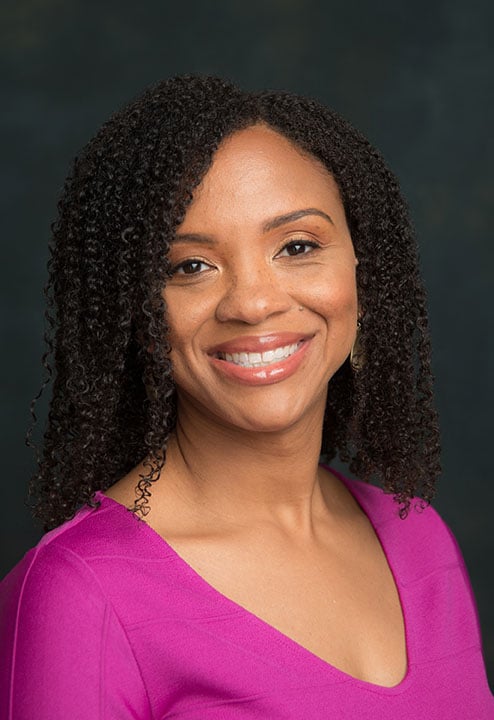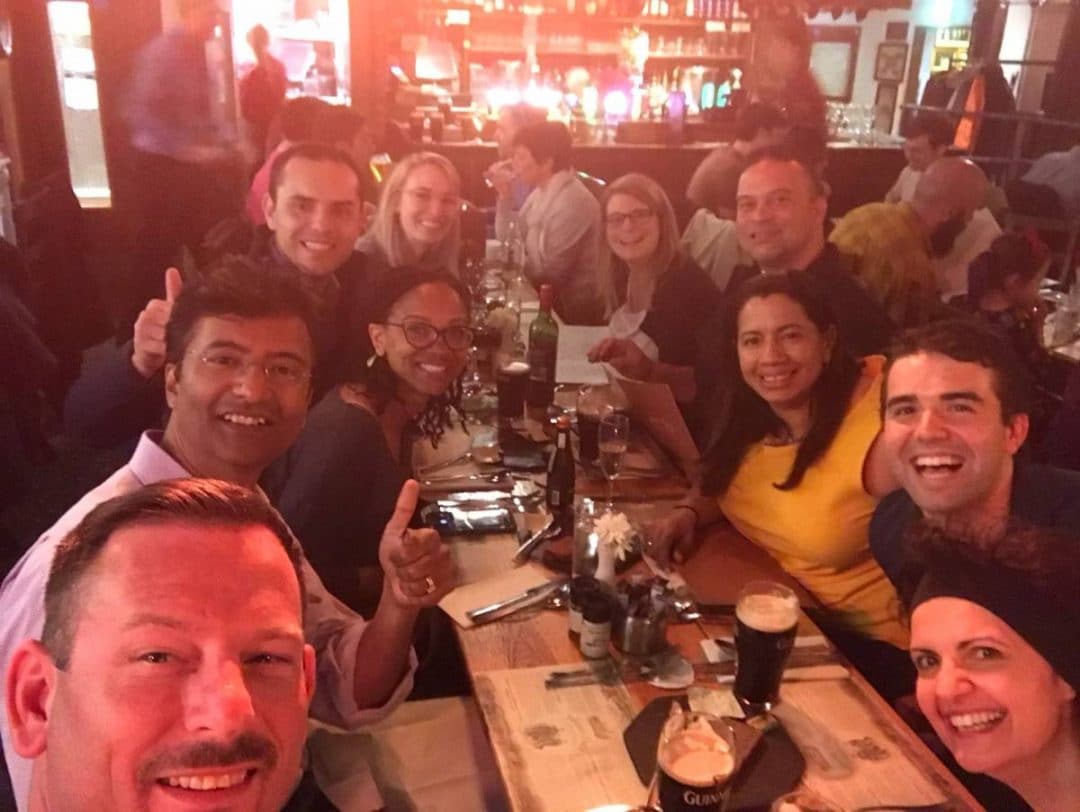How I benefitted from an Executive MBA

By Catisha Turner, MBA ’19, Operations Manager, RTI Surgical
When I started the Executive MBA Program, I repeatedly questioned my own sanity. With 17+ years of leadership positions, I knew the program was the best fit for where I was in my career. But I still had concerns. I asked myself several questions: How would I still have time to spend with my family? How could I effectively manage my time so that I kept up with the workload at my job? Would I be able to excel in subjects, like stats, that gave me anxiety in undergrad? Would I be able to spend time with my friends? Why in the world did I wait so long to go back to school? Would I still have a life?
Thankfully, all my concerns were eventually addressed. By the end of that first weekend, I felt energized. I was in a learning environment, and I felt lifted by the determination and focus I saw in the rest of my cohort. Over time, I figured out how to arrange my schedule and my priorities so the program fit with my life. Instead of doing homework after my kids went to bed, I did homework when they did homework. In fact, they were often part of my homework! When it was time to practice my presentation for Professional Communication, they were my audience, and they pointed out my “umms” and “ahhs”. When I was preparing for the spokesperson role for Crisis Management, they grilled me on the list of questions I’d likely be asked. And when it was time to study for written exams, they used my note cards to quiz me and learned words that most 9 and 12-year-olds will not soon need or recognize.
I also learned to use all my time to my advantage. Occasionally, I’d study on my work lunch breaks or while waiting in the parking lot for my girls to get out of dance practice. I read articles while getting my hair done or while waiting in the doctor’s office. I did class assignments on most week nights, but weekends were my focused times to get classwork done. However, the work didn’t consume my whole weekend. I could spend either the morning or evening studying, and then the rest of the time with my family. I still had time to spend with friends.
Moreover, I gained friends and a solid support network through my team. The fantastic thing about the program’s setup was that I was able to share much of the initially overwhelming workload with my team. We were able to work through and discuss assignments together, and through that discussion, I was able to gain understanding of topics that previously had me stumped. We each had our strengths and weaknesses, but we were committed to one another and to submitting quality work on each of our assignments. The teamwork aspect was key in helping to overcome my initial fears.
As for the initial hesitation of going back to school after 18 years, it was like the proverbial riding of a bike, but this time I was more focused and skilled. I was so grateful that I’d waited to go back to school after being in the workforce for many years, because the material was not hypothetical for me; it was what I was living and breathing each day at work, so I could take what I learned on Friday – Sunday and apply it when I got to work on Monday. One of the things I appreciated most about the program was that the dynamics between me and the professors had changed from when I was an undergraduate. I wasn’t sitting in a room being taught to; there was engaging, challenging discussion happening between the professors and members of my class as we talked about what we were currently experiencing in our jobs or had experienced previously. We were learning from each other as we were learning from the faculty. It was a beautiful thing!

The curriculum has helped me grow professionally in many ways. From the very first class, Professional Writing with Professor Barnes, I changed the way I communicated with my team, my peers and others in my organization. I went back and looked at some of my old emails and was appalled at some of the things I’d previously put in writing. Because of the Professional Communication class with Professor Limon, I changed the way I developed and presented information to large groups and became more intentional in the delivery of my message. One of the primary reasons I’d decided to join the MBA Program was to close the gaps in my financial and technical knowledge. I now have a solid understanding of business financials and investment tools and can better connect what I do as an Operations Manager to the strategic and financial goals of my firm.
One of our earliest assignments, the Firm Analysis in Alba’s class, helped me to take an objective view of all activities in my firm and clearly identify our strengths and weaknesses. When a non-compete became a possibility, I knew from my Business Law class what was reasonable, what was enforceable, and what proper consideration should look like – thanks Professor Thomas! And there were tools from Organizational Behavior on goal setting and communication strategies from Crisis Management that I implemented with my team. Virtually every class added something valuable to my personal and professional development. The information I gained helped me become a part of conversations where I would have previously been excluded or overwhelmed. I am a more knowledgeable and well-rounded businesswoman because of my participation in this program, and it’s not just head knowledge. I have legitimate tools that I can use to implement change and increase productivity.
In my career, I’ve often questioned what my role should be or if I was in the right place; I leave this program knowing that no matter where I land or what my title is, that I am undoubtedly a stronger leader. It’s been reinforced by the faculty and staff, by the curriculum, and in large part, by my EMBA19 cohort. My cohort has been one of the most supportive groups I’ve met in my career, and I leave this program with friendships that I did not anticipate when I applied. They helped keep me afloat when I had personal and professional challenges and encouraged me to push forward and not set limitations on what I could achieve. Despite some initial fears, I know this program was the best fit for me because I was able to learn and excel in a group of my peers, bolster my business knowledge and professional potential, and develop connections that will benefit and inspire me for years to come.
Are you considering an Executive MBA to propel your career? Request information.




